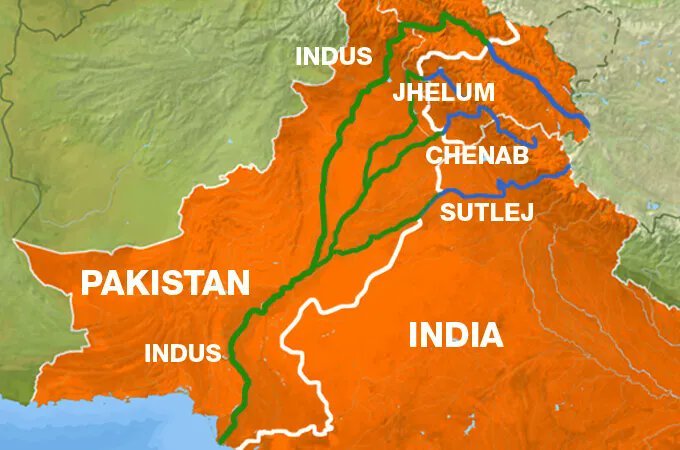India dealt a significant blow to Pakistan by suspending the Indus Waters Treaty, which has been in place for 65 years. The treaty, signed in 1960, gives India control over the waters of the Beas, Ravi, and Sutlej rivers, while Pakistan controls the waters of the Indus, Chenab, and Jhelum rivers.
Under the treaty, India receives about 30% of the total water carried by the Indus Rivers System, while Pakistan receives the remaining 70%. Despite the seemingly equal distribution, Pakistan actually receives around 80% of the total water flow of the Indus River System.
The decision to suspend the treaty is expected to have a significant impact on Pakistan, particularly on its agriculture sector, which heavily relies on the waters of the Indus, Jhelum, and Chenab rivers. Punjab and Sindh, in particular, are highly dependent on these waters for irrigation.
Additionally, this move is seen as a strong message to Bangladesh, with experts suggesting that it may serve as a warning against Islamic extremism and terrorism. The decision comes in the wake of strong views held by US President Trump and Secretary of State Vance on these issues.
The suspension of the treaty marks a significant shift in the dynamics of water sharing between India and Pakistan, and is likely to have far-reaching consequences for both countries in the coming months.

